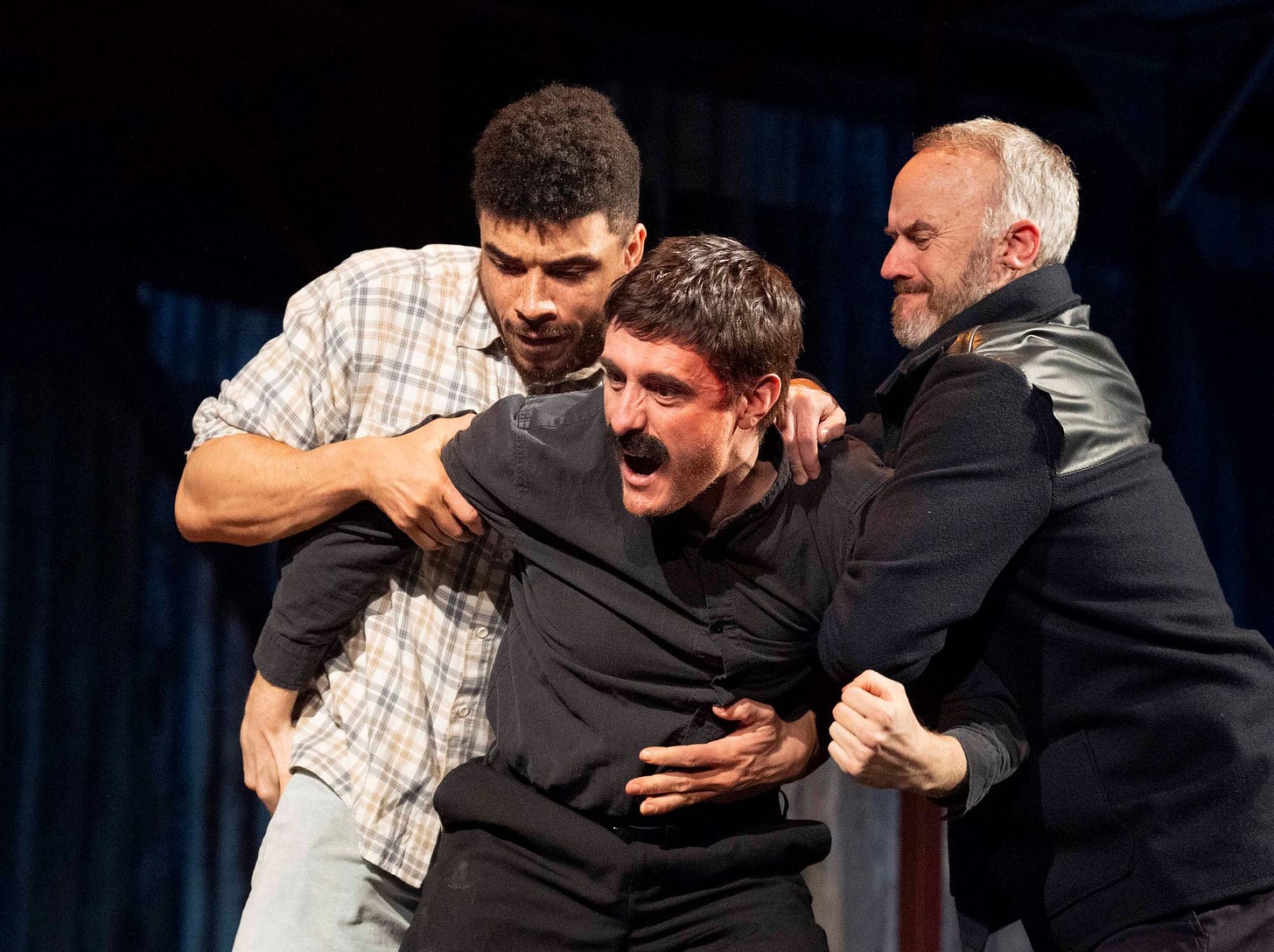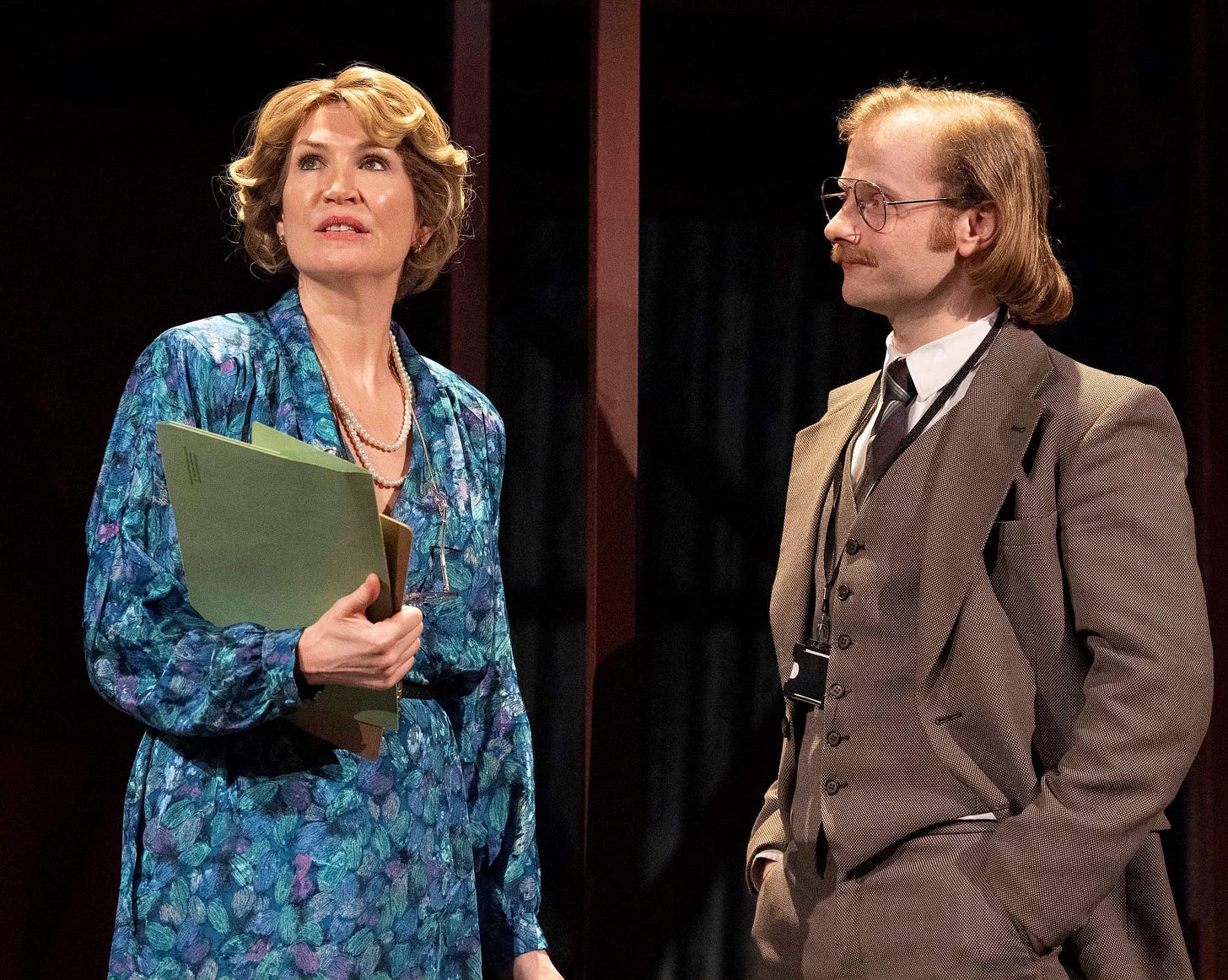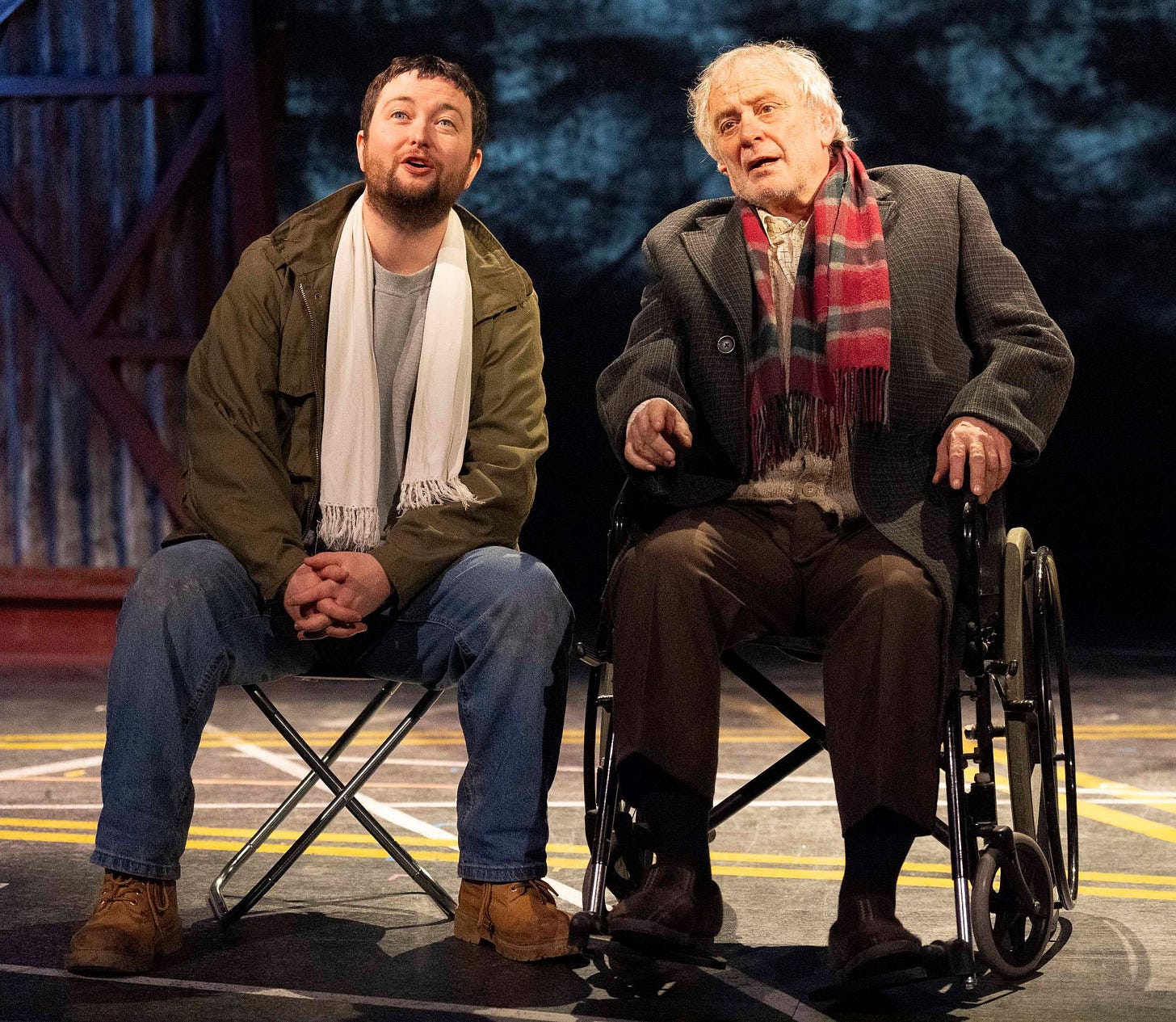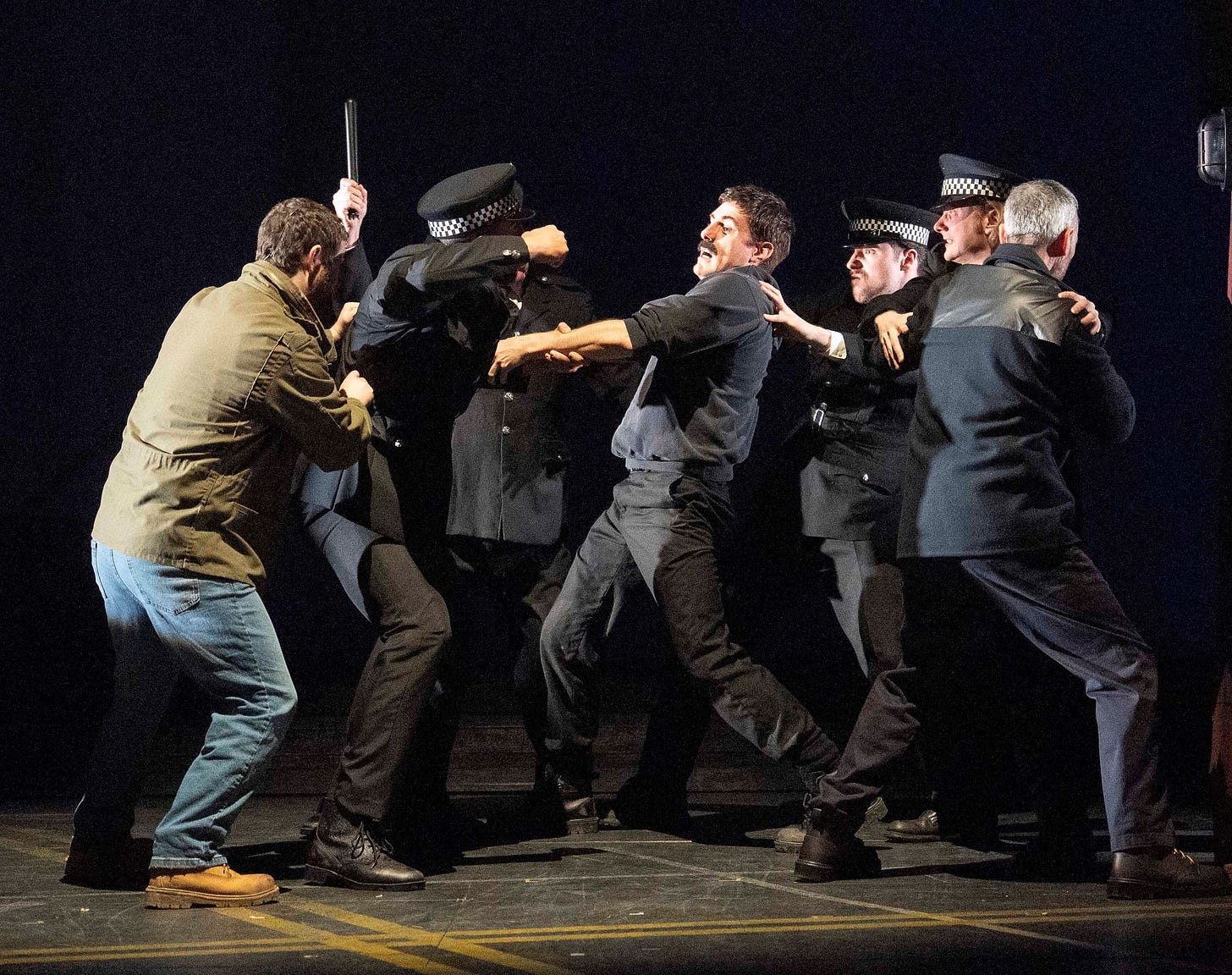REVIEW: Boys from the Blackstuff, Theatre Royal
Play offers chill reminder of Maggie’s decade

The evening begins with a brief blast of Margaret Thatcher (and if you’ve got to have a blast of Margaret Thatcher, that’s definitely the sort to have).
It causes the towering set of dockside gantries to shudder a little - or was that just me in my seat?
Watch out, people grew accustomed to saying in the 1980s, Maggie’s about.
There’ll be those who’ll say the writing had long been on the walls, that the intransigent unions were to blame, that it was for the best in the long run – but the then Prime Minister’s policies wreaked havoc on Merseyside, just as they did across swathes of the North East.
The former was the setting for Alan Bleasdale’s TV series, Boys from the Blackstuff, although it began with a single TV play about labourers from Liverpool laying Tarmac – the ‘black stuff’ – in Middlesbrough.
Something on that job went wrong, a falling out whose shadow fell across the subsequent TV series as it does across this play, fashioned by James Graham from all the broadcast material.
It’s black and it’s bleak, focusing as it does on a group of Liverpool men as they strive to augment their meagre dole with a bit of cash-in-hand while outwitting the ‘sniffers’ from social security.

In one corner are Chrissie (George Caple), Loggo (Jurell Carter), Dixie (Mark Womack), the veteran George (Ged McKenna), the ill-fated Snowy (Reiss Barber), young Kevin (Kyle Harrison-Pope) and Yosser (Jay Johnson) whose TV catchphrases, “Gizza job” and “I can do that”, pepper the script.
In the opposing corner – and from the busily multi-tasking remainder of the cast - are those with jobs, the bureaucrats and ‘sniffers’, backed up when necessary by the police. (Mrs Thatcher liked the police.)
Many of those with clipboards or truncheons are drawn from the same streets as the men they are spying on, which adds to the tension.
The play swings from the ghastly present, with Chrissie’s wife having a go at him for putting principles ahead of food and Dixie’s under siege as all and sundry, friend and foe, come calling, to a rose-tinted past evoked unconvincingly by George in contemplative moments.
But there’s little to get nostalgic about here or even to warm to. Despite committed performances and a thread of humour as dark as the title, it’s a play that weighs heavily on the viewer.
You feel the characters’ pain and can only thank God it’s now and not then. The present, while far from perfect, is surely preferable to the grim grind of the decade in question.
The encounters with God, via the Protestant vicar and the Catholic priest, deliver some of the play’s funniest lines.
But what of poor Yosser, ill-equipped with his “gizza” to thrive in a world where people ejected from the workplace were urged to get on their bikes and fend for themselves?
His desperate efforts to keep his kids out of care, along with his propensity for flooring adversaries with nut or fist, seem less funny than they did on TV all those years ago.
The man was probably suffering from PTSD, liberally dispensed in the 1980s before it was even recognised as a thing.
It was a decade of winners and losers, of carrots and sticks. Many of those who won, won big; the same can be said of those who lost. Here’s a reminder that life could be as cold and forbidding as the projected backdrop of the sea.
Boys from the Blackstuff runs until Saturday, May 24. Tickets from the Theatre Royal box office.




